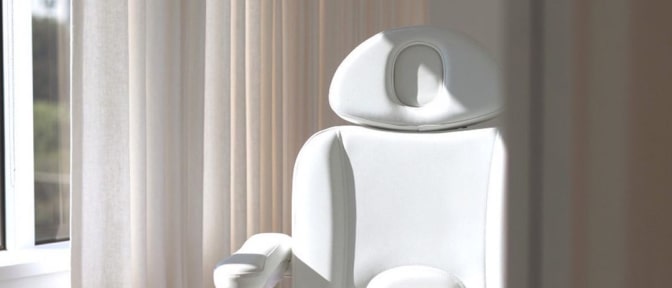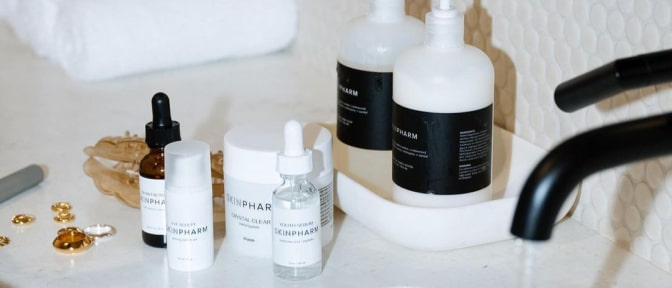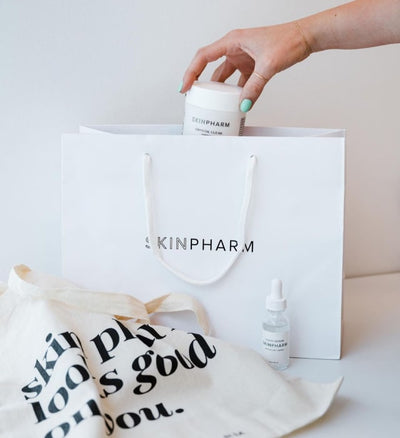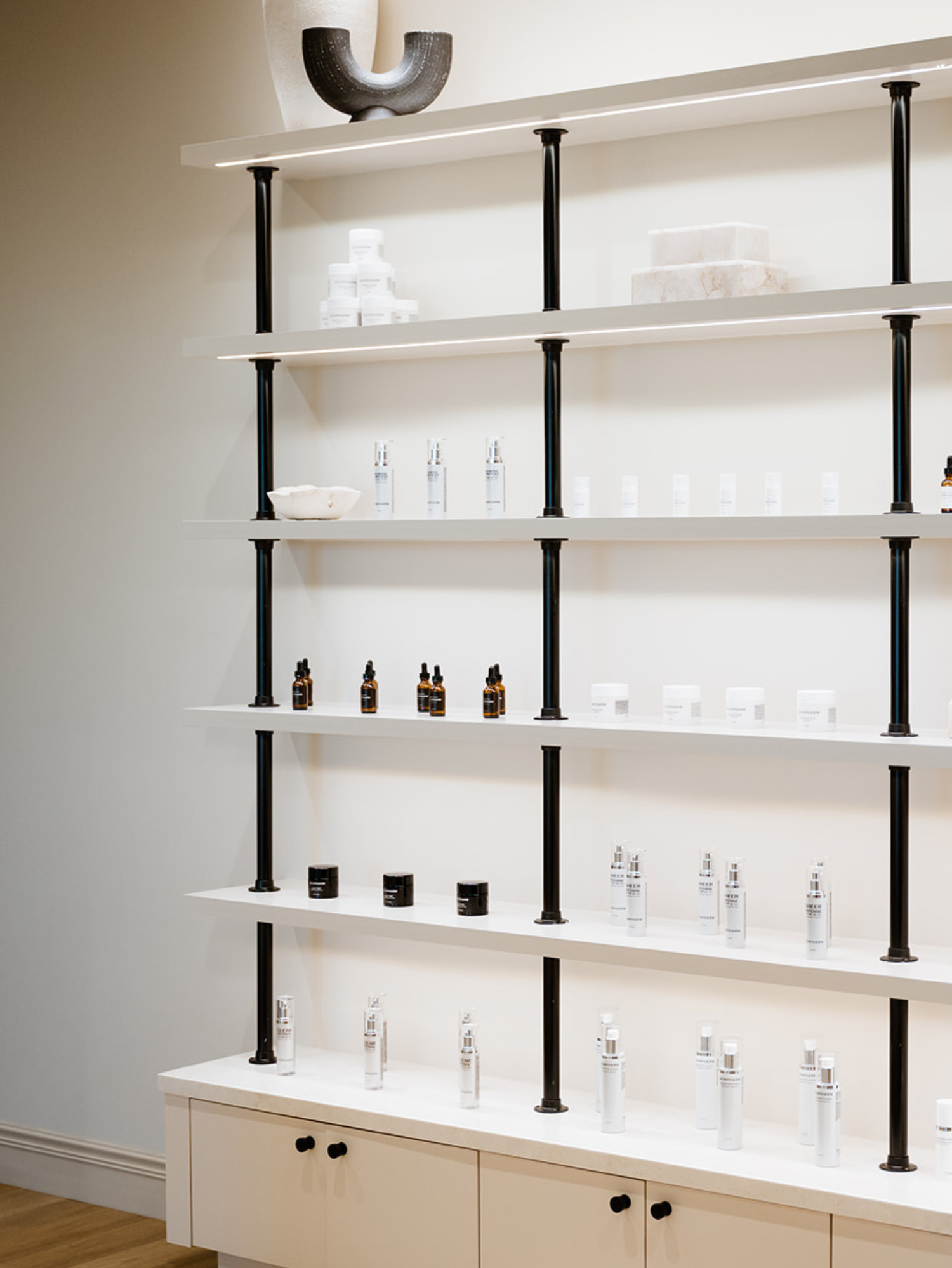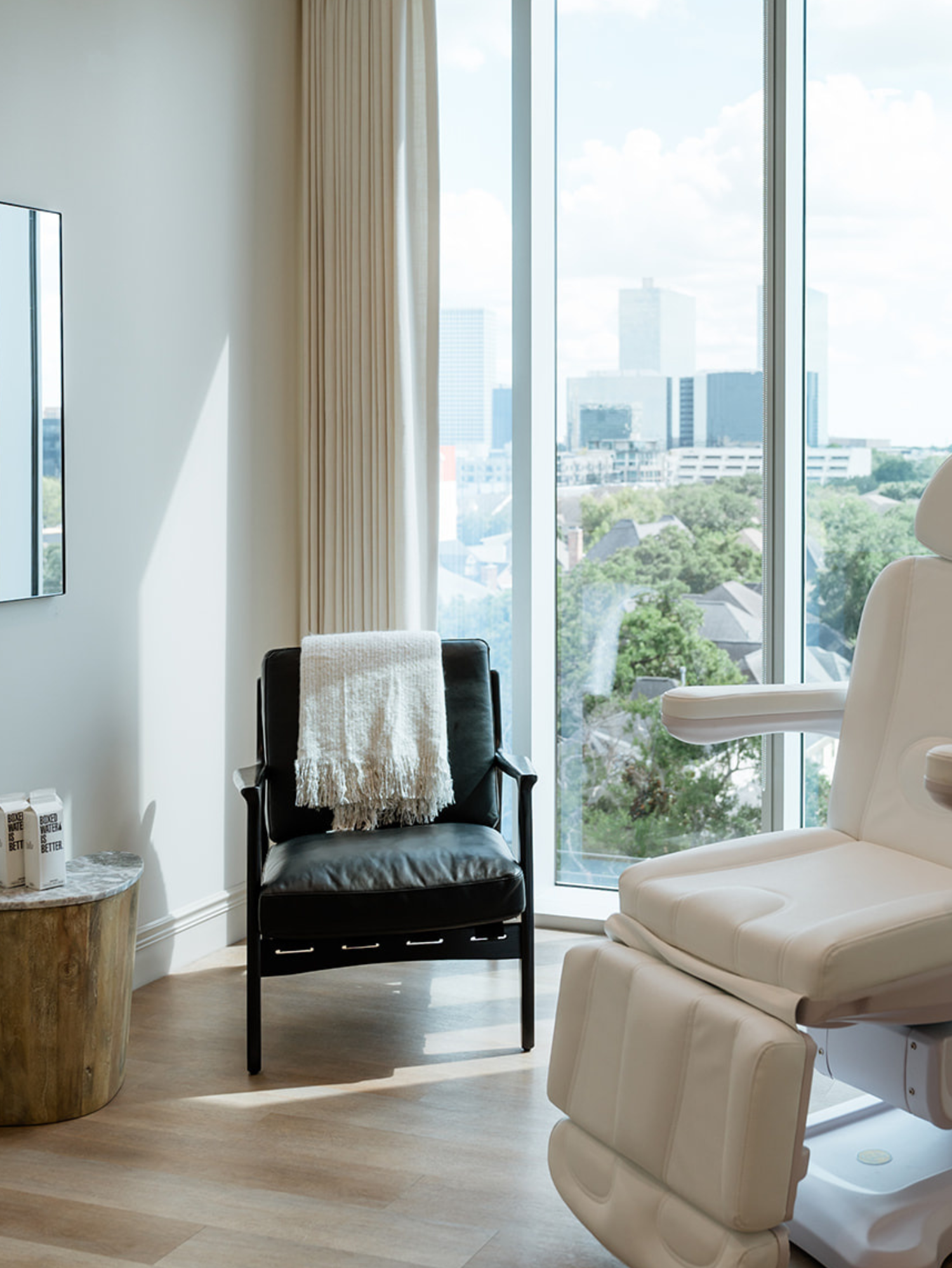Shop skin care
Clinics
VISIT OUR 9 CLINICS →
HOURS
Monday – Friday
9:30a – 5:30p
What Is the Skin Barrier? Here’s What You Need to Know

It seems like there’s always a new skin care trend or buzzword floating around.
It can be a challenge to keep up and an even bigger challenge to determine what to do with each new term. One you might be seeing more and more is “skin barrier.”
It might seem like a new trend to talk about the skin barrier and its function, but this is actually information we’ve had for a long time. However, we do have some new science to help us understand how to better protect and care for it.
We’ll explain what the skin barrier is and give you some tips to make sure you’re taking great care of it so your skin stays youthful, radiant and hydrated at any age.
What is the skin barrier?
The skin barrier is also referred to as the stratum corneum or the epidermis of your skin. It’s the outer layer of your skin that protects the deeper layers of your skin (and your entire body) from external stressors.
Your skin barrier has many jobs, like protecting you from pathogens, infections and allergens. It’s also responsible for preventing transepidermal water loss (TEWL). The skin barrier is made up of cholesterol, ceramides, proteins and lipids (or fatty acids).
The health of the skin barrier is determined by several different factors.
What contributes to the health of the skin barrier?
Your skin is up against some pretty tough stressors throughout your day. You’ve probably heard of the term “free radicals.” Free radicals are unbalanced molecules that can damage healthy skin cells. They’re released when your skin is exposed to UV rays, pollution and even cigarette smoke.
The damage caused by free radicals is called oxidative stress, and it’s one of the reasons why your skin might experience early signs of aging. It can also lead to a damaged skin barrier.
Dehydration can also affect how the outermost layer of your skin behaves. A skin care routine that's filled with harsh, drying products like soaps or heavy astringent cleansers can damage the skin barrier, causing dryness.
Sometimes, we can unknowingly self-sabotage. By using skin care products that aren’t designed for our specific skin types or through a routine that includes over-exfoliating, we can damage the skin barrier. A compromised skin barrier needs immediate attention and care to restore its health and ensure it can continue to protect the deeper layers of your skin (and your body).
What are the symptoms of an unhealthy skin barrier?
You might have a feeling your moisture barrier is compromised, but there are some symptoms that indicate this. Common symptoms of skin barrier dysfunction include:
- Breakouts
- Dry, flaky skin
- Rough patches of uneven skin texture
- Burning or itching
- Skin infections
- Sensitive skin
If your skin looks uneven and dull, that could be a skin barrier issue, too.
How can you support skin barrier health?
A healthy skin barrier starts with skin health, and skin health can be supported with the right skin care. One of the most important ways to take care of your skin barrier is to keep it properly hydrated.
Hydration
There are a lot of skin care ingredients that promise to elevate dry skin to a state of serious hydration, but the ones we include in Skin Pharm products have scientifically proven abilities to help your skin retain moisture.
One hydration heavy hitter is hyaluronic acid. This molecule, which is found naturally in the skin, has the ability to hold 1,000 times its own weight in water, making it incredibly effective at keeping your skin hydrated.
Another popular humectant is glycerin, which also helps pull moisture into the skin barrier. Depending on your skin type, you may also want to use some occlusive ingredients to help provide extra nourishment and protection as your skin barrier repairs.
Protection
Your skin barrier might be the ultimate guardian of your body, but it needs protection, too. Sunscreen is your first line of defense against harmful UV rays, and we recommend an SPF higher than 15 if you’re in direct sunlight.
Sun exposure can happen on cloudy days or even when you’re sitting in an office by a window. Wearing sunscreen daily can help prevent visible signs of sun damage to your skin barrier. However, there’s more you can do to protect your skin from the outside world.
Fighting free radicals requires your skin to have antioxidant protection. Antioxidants are like little shields that protect your skin cells from external irritants. You can find them naturally in products that contain ingredients like vitamin C and niacinamide.
If your skin barrier is compromised, you can also schedule an appointment with your skin care provider. Depending on the extent of your damage, your provider may recommend holding off on actives like chemical exfoliants and scrubs and instead focusing on nourishing ingredients.
Skin Pharm solutions for skin barrier health
We help you fix your skin gripes, no matter your skin type. If it’s a skin barrier issue you’re struggling with, we’re here to help! Book a skin consult with us to get started — we can even do these over the phone.
We also have skin care products that are designed to target your skin barrier and provide the hydration and defense it needs. Our Sheer Defense SPF is a favorite because it’s lightweight, absorbs rapidly and contains ingredients that can help support a hydrated skin barrier.
Support the barrier
Your skin barrier does hard work, and giving it a little TLC is worth the investment in your skin care journey. Protect and care for your skin barrier, and you can enjoy the benefits of radiant, youthful-looking skin.
At Skin Pharm, we always use proven ingredients that make a difference. If you’re wondering where to start when it comes to supporting your skin barrier, schedule a consultation at one of our clinics — our skin care providers are here for you!
SOURCES:
The skin's barrier | PubMed.gov
Skin hydration and hyaluronic acid | PubMed.gov
How To Tell if Your Skin Barrier Is Damaged and What To Do About It | Cleveland Clinic.org
